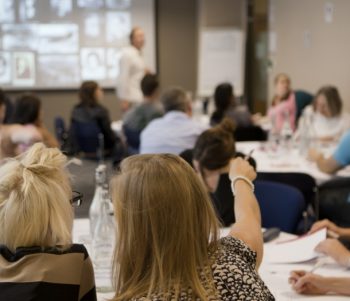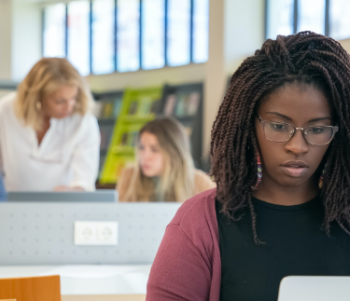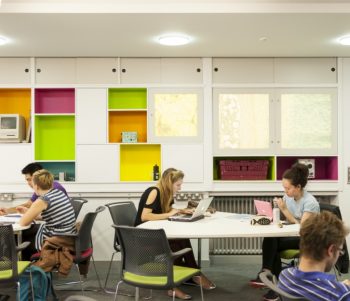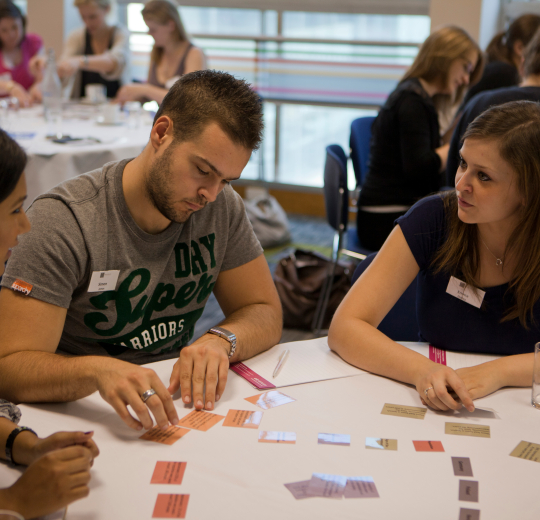Teachers
Our research-informed national programme of continuing professional development is uniquely responsive to the needs and challenges of the classroom.
What do you want to do today?
Our portfolio of classroom resources are intuitively designed to help enrich your teaching and your students’ learning about the Holocaust. Informed by our research into what students know and understand, these materials address specific topics and themes. Each set of resources are accompanied by comprehensive guidance and associated CPD courses to develop your confidence in delivering them in your classroom. To support your planning, these materials are organized around five key enquiry questions, presented below.
Who were the victims?
10 resources-
View
A note from Leon
-
View
Authentic encounters
-
View
Being German and Jewish: The Gumprich and Voos families
-
View
Jewish life in Warsaw before the Holocaust
-
View
Life in Plauen
-
View
Narrative links
-
View
Striving to live
-
View
Surviving survival?
-
View
What happened to the Jews of Europe?
-
View
Who were the six million?
Our research-informed national programme of Continuing Professional Development (CPD) has been transforming the way the Holocaust is taught in English secondary schools for more than 15 years. Today, we offer a range of CPD opportunities designed to suit your needs and contexts. This includes our landmark MA module, our international MOOC, and our collection of self-guided online courses. If you are interested in face-to-face CPD opportunities and our offer for ITE trainees please email us at: holocaust@ucl.ac.uk
Research-informed professional development
-
View
6 things your students should know about the Holocaust
-
View
Authentic Encounters with the Holocaust: A starting point for teachers
-
View
Online Masters Module: The Holocaust in the Curriculum
-
View
Teaching the Holocaust: Innovative Approaches to the Challenges We Face
-
View
Understanding the Holocaust at Key Stage 3: Teaching with a research-informed Textbook
-
View
Podcast 1: ‘Survivors’
-
View
Podcast 2: Empire of Destruction
-
View
Podcast 3: Conspiracy theories and the Holocaust – in conversation with Jeremy Hayward
-
View
Podcast 4: Assessment and the Holocaust – in conversation with Dr Mary Richardson
Podcast 4: Assessment and the Holocaust – in conversation with […]
-
View
Special Podcast: Leon Greenman and the struggle for survival
-
View
HMD Guest Lecture 2024, ‘Fragility of Freedom’
On 23rd January 2024 our guest speaker to mark Holocaust Memorial […]
-
View
Dialogues in Holocaust Education: ‘The Holocaust – An Unfinished History’ with Professor Dan Stone
-
View
Dialogues in Holocaust Education: ‘Bystander Society’
We recently began our series of ‘Dialogues in Holocaust Education’ […]
-
View
Dialogues in Holocaust Education: ‘Rescuers’
Teaching and learning does not only happen in school classrooms. The recent growth in remote education and home-schooling in England creates opportunities for students to develop as independent learners, but this potential cannot be realised without structure and purpose. Our suite of self-directed online student resources gives you the material to provide this.
Support student's independent learning
-
View
6 things you should know about the Holocaust
-
View
Being German and Jewish: Living in hope in uncertain times
-
View
Heroic actions of the Holocaust
-
View
Janusz Korczak and the Orphans of the Warsaw Ghetto
-
View
Jewish life in Warsaw before the Holocaust
-
View
Resistance & the Holocaust
-
View
The struggle to survive
-
View
The Warsaw Ghetto Uprising
-
View
Then and now
-
View
What’s my story?
-
View
What was a Nazi concentration camp?
“Excellent resources and a very new, fresh and visual way of teaching the Holocaust. It made me think about how I teach more generally.”
Kelly Manfield, Bathouse College





